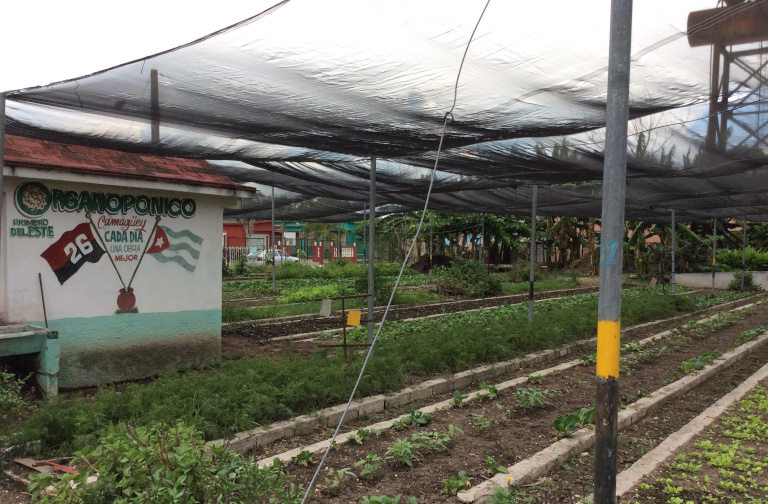What Cuba's "organic revolution" taught me about AI
By Jim Allen, originally published by Resilience.org
July 7, 2023

Cuban organic agriculture farm
Back in March, I was preparing an April Earth Day presentation to our local church (UU) congregation based on the Nate Hagens “Great Simplification” animated video series. (thegreatsimplification.com) I planned to feature a look at Cuba’s successful coping with the “great simplification” inflicted on that country in the 1990s when the collapse of the Soviet Union caused the loss of all the oil and oil products they had been getting from the Russians. Suddenly Cuba owned 90,000 Russian tractors and had no diesel fuel. Or fossil fuel-derived fertilizers or pesticides. So they were forced to “go organic.”
Then, as I was happily working up my presentation, the news came out that over 1,000 relevantly credentialed people had signed a letter urging a six-month pause in AI development. (
https://futureoflife.org/open-letter/pause-giant-ai-experiments/) They said the pause was needed to work up a plan to make sure future AI systems would not pose a serious existential risk for humanity. I thought Oh my, “existential risk?” I should look into this. But I was otherwise busy and I thought this has nothing to do with Cuba.
However. Issues that came up during the Q & A time following my Earth Day show caused me to begin rethinking the Situation. I had presented the Cuban “Organic Revolution” as a good news case study, showing that even a sudden and extreme kind of great simplification can be survived. If enough people are willing to accept very different living and working conditions and pitch in to make it work. In Cuba, people from different professional backgrounds, including teachers, lawyers, and nurses, “pitched in,” becoming farmers overnight. I showed a brief PBS documentary titled “What Cuba Can Teach America about Organic Farming,” in which one Cuban farmer says “It’s really hard work. Takes a lot of love.” (
https://www.pbs.org/newshour/show/cuba-can-teach-america-farming)
But some in my audience – among the best and brightest, even – balked, saying things like “I have to think there’s something wrong with this story, we all know organic farming can’t match the yield of modern industrial agriculture, so what was really going on?”
Reflecting on this objection led me to realize I had been placing too much emphasis on the Cuban food system being “organic.” The more important point was that it was local. Which our “modern industrial agriculture” is clearly not. For this reason, comparison of yields at the farm gate is not the relevant metric. What matters is food delivered to hungry mouths. The industrial system produces largely “food products” put together across global supply and distribution chains, with waste at every node and stage. Then studies consistently show that somewhere around 40% of food delivered to US households and restaurants is wasted. A mostly local and largely farm-to-table food system like Cuba’s was, is far more efficient in getting food to really hungry mouths, so it doesn’t have to match the industrial farm-gate yield.
More:
https://www.resilience.org/stories/2023-07-07/what-cubas-organic-revolution-taught-me-about-ai/
